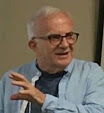Our verb “to play” gets a lot of work. It comes from a very old Dutch word that means to “dance, leap for joy, and rejoice”. The dictionary tells us that a person is playing when they “move about in a lively, irregular, or capricious motion”.
We like the word “play”. We use it for lots of reasons. We
have playmates and playgrounds, and we attend plays in theaters. We play chess, music, ball, cards, and so many other activities. We
play musical instruments. If we can’t instruments, we play radios, records or
a tape.
Sometimes we use the word to describe a mechanical defect.
We say there’s too much “play” in the steering wheel. Sometimes we just play
“at” something rather than seriously pursue it.
It’s not always pleasant. No one likes to play second
fiddle, and certainly no one wants to be played.
In the 18th century, there was a proverb that went “the wise
child handles father and mother by playing one against the other”.
Some players are “professional" - as in baseball, blackjack, or bassoons. But amateurs play these things too. The difference is in the money.
Animals play. Even machines play. For example, until very
recently everyone had either a record or CD play-ers
Savvy scientists are developing sophisticated robots that
seem to “dance, leap for joy, and rejoice”. They certainly move about with
“lively, irregular, and capricious motions”. But as Mr. Shakespeare would say,
“there’s the rub”. There is nothing spontaneous about robotic play. The
playfulness of robots, if such there be, resides in their human creators.
In an extraordinary book written in the 1930s, Johan Huizinga demonstrated that nearly everything we do is an expression of our innate playfulness. Playfulness is the fecund fountain of all human invention.
A new recipe? Play. A new mobile phone? Play. A new go-cart
for a Sunday drive on the Martian surface? Play. A world war? Play. A treaty to end the war? That's play too. Seriously!
Even the most somber religions embody a deeply playful impulse. Their adherents may not know it, but a gloomy countenance may be their way of playing. Why are there so many theologies, liturgies, and practices? Because without these playful inventions, religion grows stale. Without an awareness of its playful, inventive core, religion becomes oppressive and fuels our worst impulses.
It matters a great deal what we play and how we play. Too
often the joyful and life-affirming spirit of playfulness is perverted. Too
many people today play only sinister and violent games.
Every
day our elected officials play. But what games do they choose to play? “Sim City”? Or
“Mortal Kombat”? “Coop-etition” or “Game of Thrones”?
Intentional play is humanizing, empowering, and life-affirming. It expands our capacity to interact joyfully with
the world. It is the defining characteristic of all life on this planet. Play
is a sacred gift to be cherished and developed for as long as we live.













